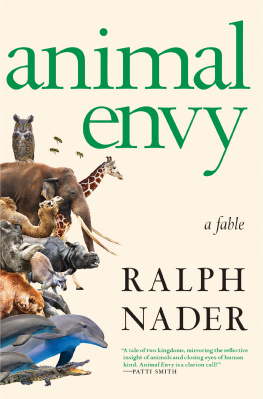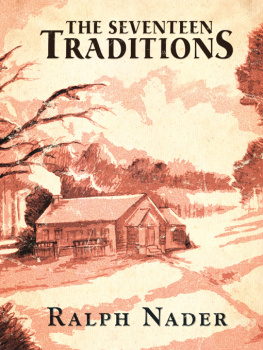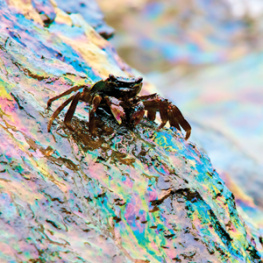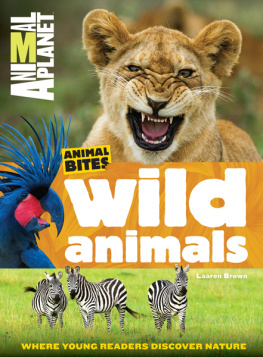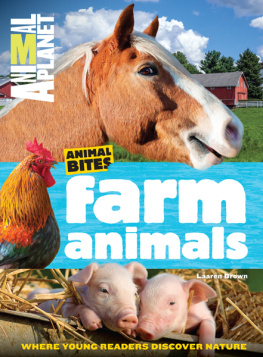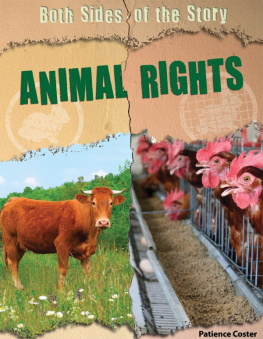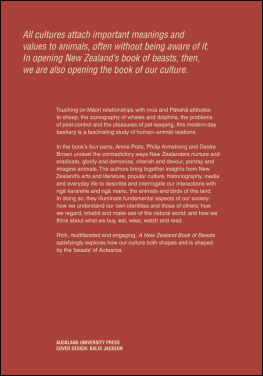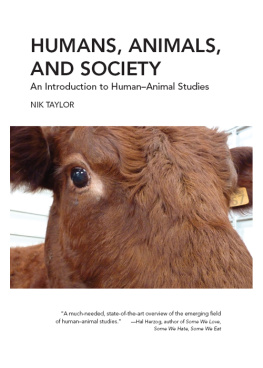animal
envy
a fable
RALPH NADER
Seven Stories Press
New York Oakland London
Copyright 2016 by Ralph Nader
A SEVEN STORIES PRESS FIRST EDITION
All rights reserved. No part of this book may be reproduced, stored in a retrieval system, or transmitted in any form or by any means, including mechanical, electronic, photocopying, recording, or otherwise, without the prior written permission of the publisher.
Seven Stories Press
140 Watts Street
New York, NY 10013
sevenstories.com
Library of Congress Cataloging-in-Publication Data
Names: Nader, Ralph, author.
Title: Animal envy / Ralph Nader.
Description: Seven Stories Press frst edition. | New York : Seven Stories
Press, [2016]
Identifers: LCCN 2016017520| ISBN 9781609807528 (hardcover) | ISBN
9781609807535 (ebook)
Subjects: LCSH: Human-animal communication--Fiction. | Human-animal
relationships--Fiction. | Political fiction. | BISAC: FICTION / Political.
Classification: LCC PS3614.A38 A85 2016 | DDC 813/.6--dc23
LC record available at https://lccn.loc.gov/2016017520
Printed in the USA.
9 8 7 6 5 4 3 2 1
Once upon a near-future time, a linguistic software developer, who is simply known as Human Genius, provided a digital translation application between mammals, fish, reptiles, birds, and simpler organisms to permit them to communicate with one another simply by using their own language signals, which would be automatically converted into understandable signals across species to their respective receivers. The lone Genius, operating without any external authority, also provided another application, which, after a set interval during which subhuman species got to speak to one another, allowed them to communicate through a hyper-advanced converter to human animals.
As can be imagined, for animals the learning process really took off. Wisdom and illuminations immediately began expanding. One day an Elephanta majestic matriarchproposed to a Crocodile and a Dolphin that, using a remote, they convene (with dozens of species) a global assembly whose purpose would be to talk to human animals. Having carefully observed human actions and suffered pain and anguish at the hands of humanity, the animal kingdom could see that human animals were themselves depressed, self-doubting, and shrinking in self-esteem, though this inner unease was partly covered up by their aggressive behavior, which reflects a violent outward arrogance that has no equal on earth.
Within a week, the response to the Elephants invitation became overwhelming. Shortly a virtual assembly gathered to discuss the best ways to approach the human animals and how best to organize the different animals numerous requests to tell these human animals what is uppermost on their minds. Soon one hundred hours were reserved for the great TALKOUT, as they called it, in which mammals, reptiles, fish, and birds from all over the planet would concisely speak to human animals of what theyve wanted to tell them forever but could not, until the Human Genius came along.
They knew that to make their core message palatable, it would have to be framed in a way that was ingratiating and flattering to humans self-interest. The approach was worthy of Gandhi or Mandela. Animal strategy was to lift up the spirits of their human masters, flatter them, then show that both sides had mutual interests in protecting wild habitats, and that this involved reducing arbitrary violence and other genocides inflicted upon the animals, sometimes to the point of extinction, such as happened to the passenger pigeon.
They were not going to rely on appeals to justice or fairness, but on showing human animals how useful the animal kingdom can be to humans the more humans understand them. After all, about three quarters of viral and bacterial infections in humans come from the animals and insects, so an understanding between the different species would help with disease control. Animal scientists and ecologists already know this, but it will have more effect coming straight from the source, the animals felt.
As the animals hammered out their strategies, important suggestions came from a blue whale, joined by a shark and a walrus. They urged that, given the explosively temperamental nature of human animals, the better part of discretion would be to have one subhuman after another particularize their praise of specific attributes of humansphysical and mentalthat subhumans had never attained during their lengthy period of evolution. Emphasize in our discussion that other animals are biologically unable to perform the way humans do, the walrus underlined. The shark especially stressed the need to use the word subhuman for themselves. The very word would emphasize their inferiority, and, the shark explained, this would massage humans spectacular egos and open their minds to listen. The shark chuckled, adding that given his species remarkable adaption to their ocean environment, many millions of years before humans arrived on the scene, it would be advisable to be humble, and play down the spectacular achievements of animals, especially fish.
The virtual animal assembly concurred with the strategy and commenced formulating concise messages of praiseworthy envy and laudatory expressions followed by pleas for humans to take the longer view, discover the many secrets of the animal world, and diminish the violence against them and their habitats.
The animal strategists decided that first to the mike would be two domesticated animals since such animals are better regarded than wild animals. Some domesticated animals, such as horses, are lovingly described as magnificent beasts, and all of these animals are widely viewed as worthy of protection, useful as mascots and often photographed and videoed. Next at the mike would be animals that are in emergency situations needing help or in predicaments that offer a ripe teaching moment to the human animals, concerning how urgent the situation is for some animals. Also, through the hours, there would be a stress on providing a diversity of animal viewpoints, both to provide a multidimensional picture to human viewers and to maintain morale and fairness within the animal kingdom. At least that was the hope for the line-up. Commencement of the hundred-hour TALKOUT to the human world was transmitted through the Human Genius.
The TALKOUT Begins
Up first, by design, were the domesticates, themselves objects of both pity and envy by their feral cousins, some of whom were already grumbling that domesticates got first place.
The horse began, keeping to the envy strategy, in a light-hearted way. Oh, humans, carried by we the horse corps for so many centuries into work, battle, markets, visits, processions, and varieties of entertainments, how we envy your ability to wipe your asses after defecation. We horses are unable to eliminate these residues, which discomfort us in so many ways, including during lovemaking. Sure we can sleep on our four feet, but wed trade that gladly for your ability to flush.
Ripples of delighted laughter coursed through the mass of mankind, eyes affixed to their screens. This intensified their attentiveness for what was about to follow.
Next up, the dog mixed envy with modesty. Wuff, humans, for many millennia we have been your loyal guards, lickers, companions, and, being partly descended from the wolf, your hunting hounds. Our sense of smell, your scientists say, is over two hundred times more sensitive than your sniffs. That is why you use us to track lost persons, fleeing criminals, explosives, drugs, and nowwoof, woofeven to detect human cancer.

